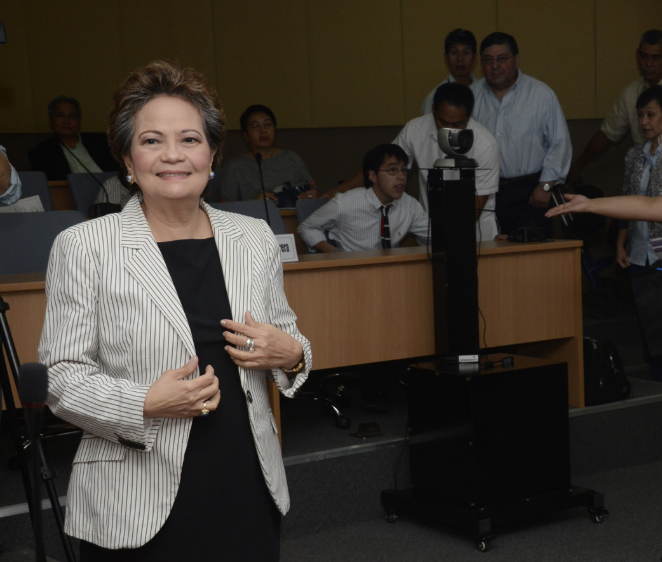News
De Castro to revive key reform projects once picked as CJ

“I’ve been working on judicial reform projects since 2009. In two years time, I was the seventh senior justice of the Court. There are continuing ones. Computerization of many of the functions of the judiciary,” said De Castro, who is the most senior justice among the applicants for the top magistrate post. (File photo: Supreme Court of the Philippines)
MANILA — Despite her imminent retirement from the judiciary in less than two months, Associate Justice Teresita Leonardo-De Castro on Thursday said she will be able to introduce reforms in the Supreme Court (SC) once named Chief Justice.
During the Judicial and Bar Council’s (JBC) public interview, De Castro said she has been working on key judicial reform projects since 2009.
“I’ve been working on judicial reform projects since 2009. In two years time, I was the seventh senior justice of the Court. There are continuing ones. Computerization of many of the functions of the judiciary,” said De Castro, who is the most senior justice among the applicants for the top magistrate post.
One of the important projects De Castro wants to put in place is the Judiciary Case Management Information System which will served as a tracking system to record and monitor the progress of cases from its filing at the lower court up to the final resolution in SC.
“We already had in place terms of reference for this hiring of the consultant for the project,” she said.
De Castro also mentioned another key project which is Enterprise Resource Planning System aimed at tackling administrative matters such as accounting, attendance and leave of personnel, among others.
“There are already terms of reference prepared for the bidding for consultancy services (for this project) but it was stopped,” the magistrate stressed.
She also wants to strengthen the Management Committee on Judicial Reforms where complaints against justices can be brought to court.
De Castro, however, lamented that the committee was not organized after the stint of the late Chief Justice Renato Corona.
Corona was replaced by former Chief Justice Maria Lourdes Sereno, whose appointment was voided through quo warranto proceedings in May.
“I have assumed chairmanship of the Management Committee on Judicial Reforms during CJ Puno and CJ Corona’s tenure. One of the important things I’d like to do before I retire is to reorganize the ethics and ethical standards committee. There must be a grievance machinery in SC so we can discipline our own,” De Castro explained.
No time to deal with bashers
De Castro, meanwhile, shrugged off netizens who called her ‘ampalaya’ (bittergourd) on social media.
She was bashed for testifying against Sereno during the impeachment trial in Congress making it appear and her line of questioning during the oral arguments on the quo warranto case seemed to confirm a rift between the two justices.
The tension between the two even spilled over to public events.
“I will not respond [to their name-callings]. I forgive them for they do not know what they are doing,” De Castro said.
“They do not know anything. They do not have a knowledge. I forgive them. They do not know what they are doing,” De Castro said, adding that she don’t have FB and Twitter accounts.
She said her colleagues as well as the court employees know her work ethics.
“If they (justices, judges and court employees) are the ones who has something negative to say, only then will I be concerned but there is none,” she said.
Prior to her appointment to the SC in 2007, de Castro was Presiding Justice of the Sandiganbayan.
De Castro penned the anti-graft court’s decision convicting former President Joseph Estrada of plunder.
She also worked as a law clerk at High Court and state counsel for the Department of Justice.





















